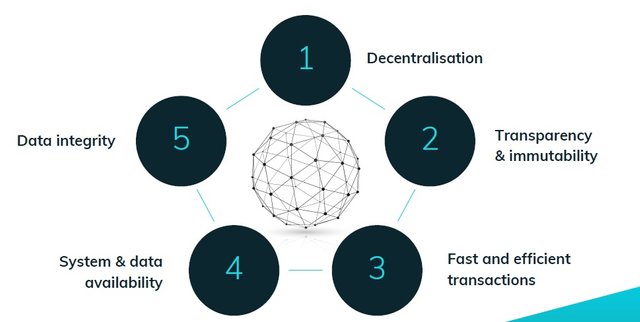The concept of a virtually anonymous, distributed ledger, contract-led blockchain-based system certainly has some significant possibilities, but believing what you read in the press and in a company’s marketing materials would be a major mistake. In 2018, you need to include two terms in your prospectus to float your company on the stock market or add to your brochure to sell your latest product: artificial intelligence (AI) and blockchain! In fact, throwing a bit of “cloud” in there couldn’t hurt either. I saw the marketing headline “The First A.I. Big Data Marketing Cloud for Blockchain” on a software website recently. It seems that any system that adds up 2 + 2 or includes an “if . . . then” decision tree is now considered AI that may take over the planet at any moment. It’s not and it won’t, even if it’s got a lot of “big data in the cloud”!

It is the same issue with the blockchain: Business analysts have watched the extraordinary rise in the value of Bitcoin, read an article on the technology it is based on, and then added the word to any system that needs to sound a bit more hip and cool (although I am well aware that the words “hip” and “cool” themselves are no longer considered “hip” or even “cool”).
A quick search of the Internet reveals insurance companies that will put your insurance agreement on the blockchain, delivery companies that will use smart contracts to deliver your parcel, auction sites that use the blockchain to reduce fraud, and security companies that promise the blockchain will prevent you from ever being hacked again. Sound far-fetched? Most are. But consider the following auction-house example.
Several years ago, I bought an old book at auction—or at least I thought I had bought it since I was the final bidder. However, the auction house told me later that it did not have a record of my final bid, and since the previous bid hadn’t reached the reserve, the book would be put up for sale again. Because the auction software was hosted in a single location and the auction house controlled it, I had no recourse or way of proving otherwise. However, I had taken a screenshot of my browser with my high bid and my successful purchase message. The auction house then told me that it had “lost the book.” After a few choice words and threats of legal action from me, it “found” the book and honored the bid. It was clear that the auction house wanted more from the auction and simply wanted a chance to sell again with a better audience. How would a blockchain-based system have improved this situation?
A blockchain auction system could work as follows: Every bidder is a node on the blockchain. A product to be auctioned is set up as a token with a contract of sale connected to it, based, for example, on the Ethereum network. Each bid made is a transaction between the auction and the highest bidder with the “token” moving seamlessly from high bidder to high bidder. Whoever is the final bidder when the real or virtual gavel comes down is left as the owner of the token. Everyone on the blockchain can see the final transaction, and the contract is set. I own the item because I own the token, and it’s proven by every node on the network. The sales contract can also form part of the blockchain contract, minimizing paperwork. (If anyone sets this system up and makes a million, please once again remember me when you are out on your yacht.)
How does this affect the investigator? Blockchain transactions on Bitcoin are one aspect of the technology and require a skill set that you will learn about in this book. However, in the future expect to find blockchain-based systems with transaction-centered contracts in a wide variety of business sectors. An analyst will need to have the skills to learn how a blockchain functions, and be able to decode contracts, and follow the flow of contract transactions. I will cover contracts in a little more detail later in the book, but if you choose to carry out further research on the smart contract-based platforms such as Ethereum, it would not be a waste of time.